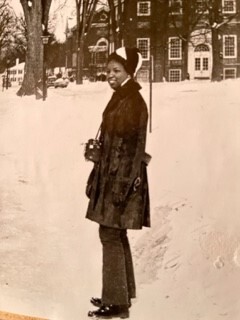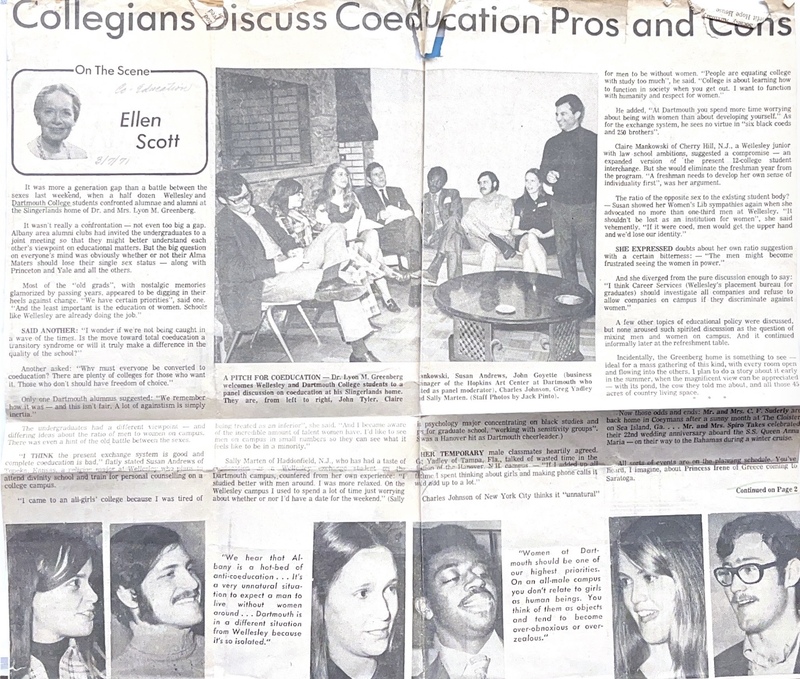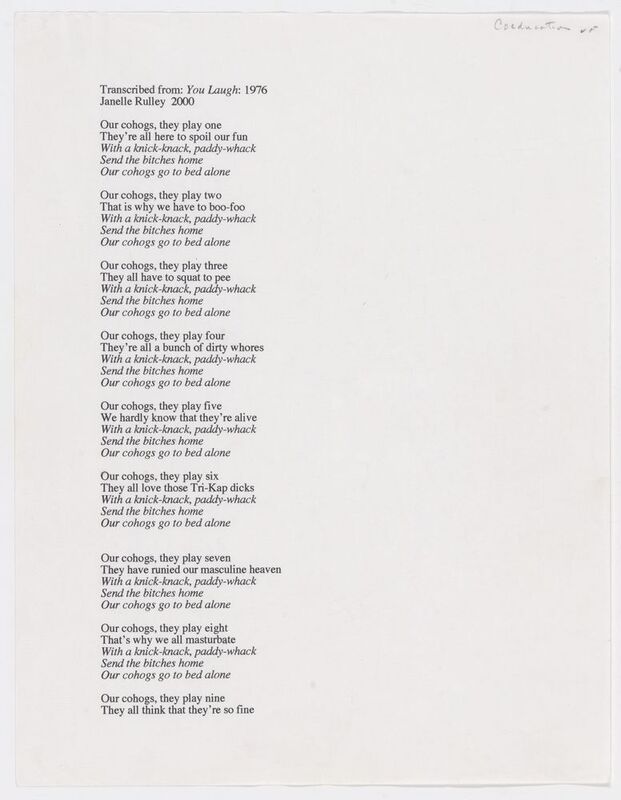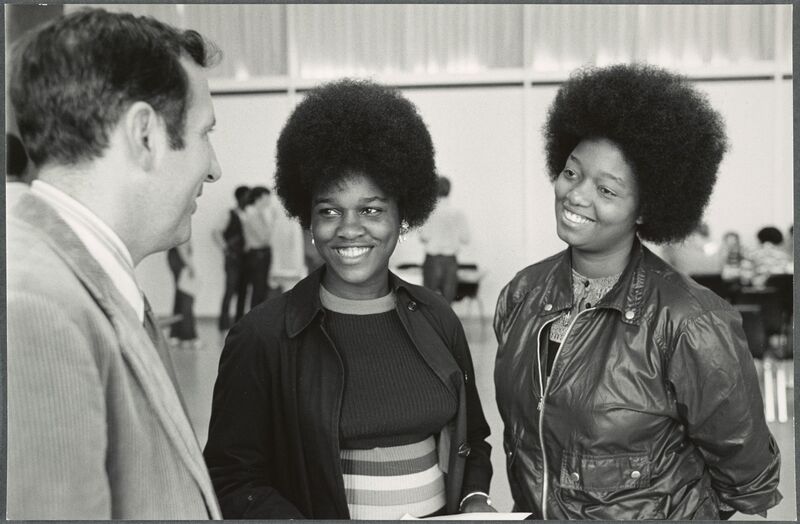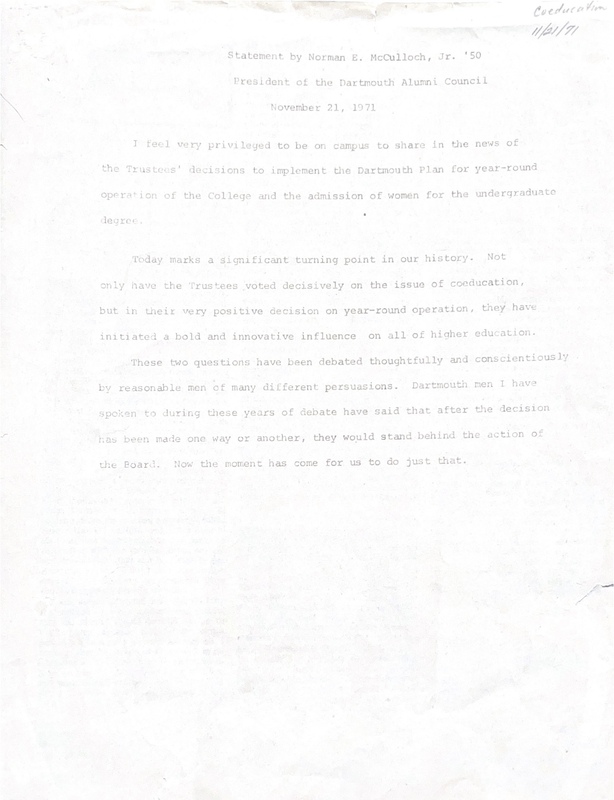To Be A Woman
For most of its history, Dartmouth College has been an all-male institution. That all changed with one announcement on November 21, 1971. For three years, the college worked to welcome women to the Big Green. It started with a soft launch. The college organized a “Coed Week,” filled with classes and activities for the young women to test the waters and prepare the male-dominated campus for the future. For a couple of years, women had the option to transfer through a one-year exchange program. This is how Powell was introduced to Dartmouth. After studying two years at Stephens College in Columbia, Missouri, Powell was accepted into the temporary program. She was 1 of about 150 women to engage with the program in 1971. There were polls taken of students' and alumni’s stances on coeducation. The majority of the male students were in favor of coeducation, but many of the alumni were not pleased. The college considered keeping the exchange program, building a sister school, or becoming coeducational. On November 21, 1971, the Board of Trustees voted in favor of coeducation, and announced their decision that day, along with the Dartmouth Plan, which made the institution a year-round operation. It was that very fall when Powell was on campus through the exchange program. Allowing Powell to stay another year, she graduated with the Class of 1973. Her senior year, she was one of the seven Black women who stayed at Dartmouth from the exchange program.
"We were aware that everybody was not excited about us being there, but I don't remember any issues with that." - Wanda Powell '73
Powell, herself, didn’t have bad experiences with the men on campus. Her professors and peers were all supportive of her attendance, but that can’t be said for every pioneer woman. In the fall of 1972, there were about 250 women on campus, most of which were members of the Class of 1976, Dartmouth's first four-year coeducational class. Quite a few of the women recall the joyous, yet hard days, when they joined 3,000 men on campus.
"People were incredibly excited. There was really a pioneering kind of spirit among us." - Ann Fritz Hackett '76
"I was so naive. When I got there, I was shocked by the vulgar resistance from a very vocal minority that made it uncomfortable and made it very clear they didn't want coeds on campus." - Cindy Wolcott '76
The college was adamant in making sure the number of male students did not fall below 3,000. For a while, the small number of male students who did not want women at Dartmouth made their voices heard. Women were harassed, embarrassed, and ignored in and out of classes. There were raids, bricks thrown through windows, verbal assaults, and many uncomfortable instances of discrimination with their male classmates. In 1975, “Our Cohogs,” a disturbing song with the repetitive line, “Send the bitches home,” was written. In the end, Powell, like most alumna of Dartmouth, enjoyed their time with the institution.
"It is hard -- no, impossible -- to imagine a better undergraduate experience than I had at Dartmouth. I think that the College admissions office did an almost magical job of choosing those first women students..." - Melanie Fisher Matte '76
In 2015, the Women of Dartmouth was founded. It’s an organization dedicated to connecting the alumnae of Dartmouth through local, communal activities and events. This fall marks fifty years since the brave first women of Dartmouth made their way to New Hampshire. The weekend of November 11, 2022 was filled with exhibits, panels, and activities, bringing alumnae in from all over the country to celebrate each other, and memorialize the first women of Dartmouth. This anniversary captures how far the institution has come, and how far it will go. Once an 8:1 ratio, the gender distribution is almost equal today, giving women a wonderful opportunity to build community, network within women-led organizations, and obtain their education in a comfortable environment. As a member of the Class of 2026, I am grateful for the vanguard.

